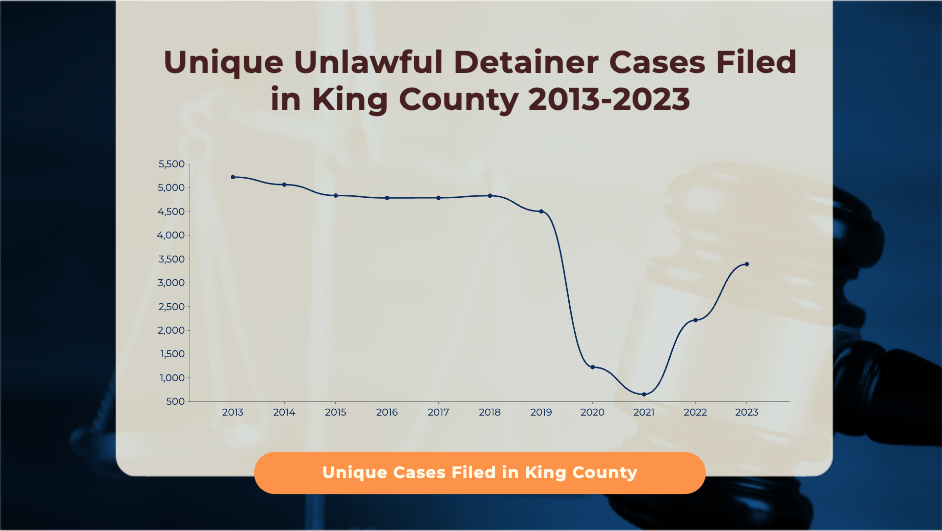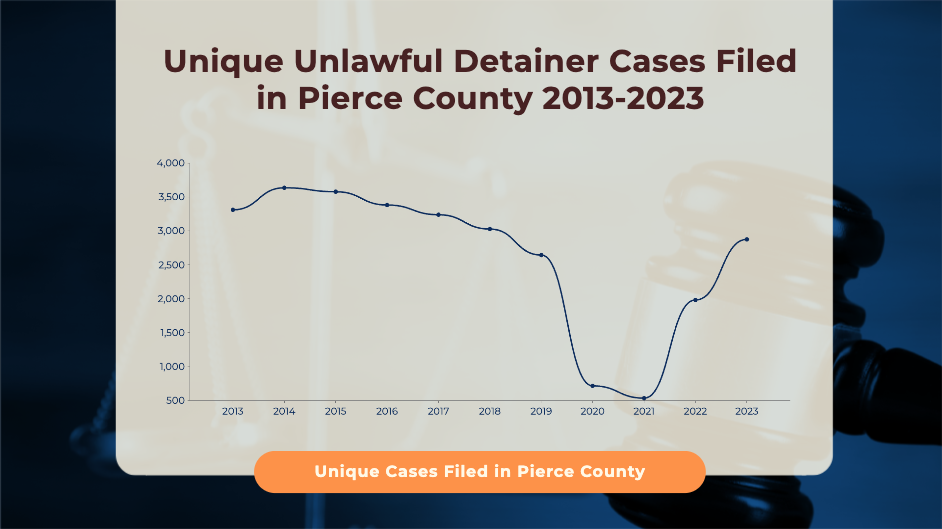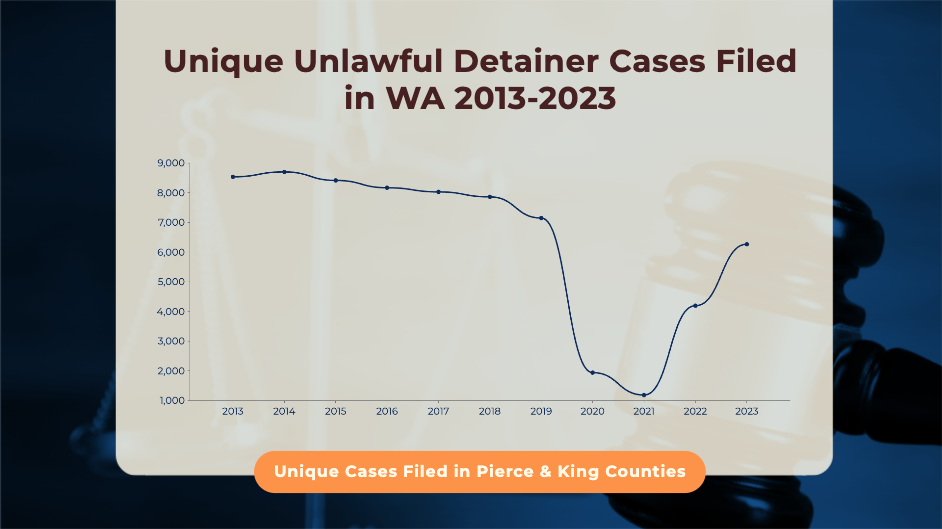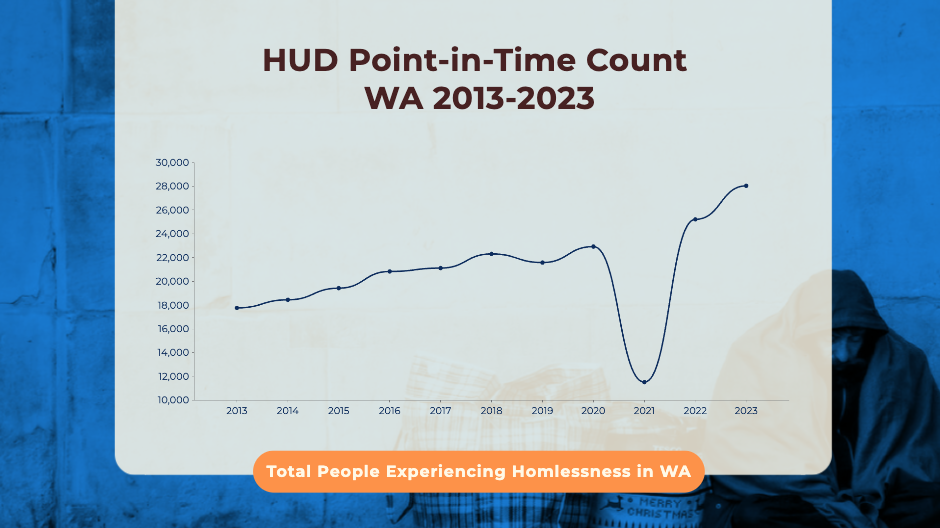The Washington Low Income Housing Alliance recently offered a ‘legislative solution‘ asking policymakers in Washington State to ‘invest’ $4.3 billion over 2 years to fund legal counsel for low-income tenants to fight evictions. They claim to have evidence that shows that evictions are a “leading cause of homelessness in Washington” but decline to actually source this evidence. The Seattle Times ran a story called “Seattle-area eviction cases spike as pandemic aid dries up,” aiming to scare readers into believing that evictions are responsible for rising homelessness. Politicians are trying to cash in on the trend as well, such as WA State House Representative April Berg, who warned voters that eviction cases “have nearly doubled” in an effort to drum up support for her upcoming re-election campaign in November.
All this talk about the connection between evictions and homelessness made us want to roll our sleeves up and dig into the data ourselves. We filed records requests with the King County and Pierce County Superior Courts about all unlawful detainer cases from 2013 to 2023 and compiled them into a public spreadsheet. Unlawful detainers are the legal precursor to carrying out a physical eviction in Washington State.



6,265 unlawful detainer cases were filed in King and Pierce Counties in 2023, up from 4,194 cases in 2022, an increase of nearly 50%. That shocking number is certainly fit for a headline, but it should be put in context. 853 fewer cases were filed in 2023 compared to 2019 (7,144 cases), a decrease of nearly 12%. Further, total unlawful detainer filings in 2023 were 1,854 less than the average number of unlawful detainer cases filed annually between 2013 and 2019 (8,119 cases per year on average), a decrease of 22.8%.
As the Seattle Times mentions in its scaremongering reporting, evictions have jumped so dramatically from 2022 because many pandemic-era protections that blocked most types of evictions had worn off. A backlog of non-paying residents had accumulated and the system was working to catch up. Not counting the pandemic years of 2020, 2021, and 2022, unlawful detainer cases are still down below the historical average.
More interestingly, how do unlawful detainer filings compare to homelessness in Washington State? We pulled state records from the Annual Homelessness Assessment Reports published by the Department of Housing and Urban Design (HUD) for 2013 to 2023 for a comparison.

The data could not be more clear. Filings of unlawful detainers were already trending down from 2014. Cases filed in 2023 appear to reinforce that downward trend (excluding data from pandemic years). However, in a trend that appears uncorrelated to unlawful detainer filings, homelessness is on an upward trajectory. This data appears to suggest that evictions are not a cause of homelessness, much less a “leading” cause. One possible interpretation of this data is that low-income people are faced with more and more difficulty finding housing that matches their budget, further reinforcing numerous warnings from Washington State government officials and agencies that Washington State is facing a severe housing shortage.


One response to “Are Evictions Causing Homelessness? The Data Says No.”
Thank you for your research and this story. There has been so much anti-housing provider spin without source identification as you pointed out. Getting solid data out there is so important to change the narrative.